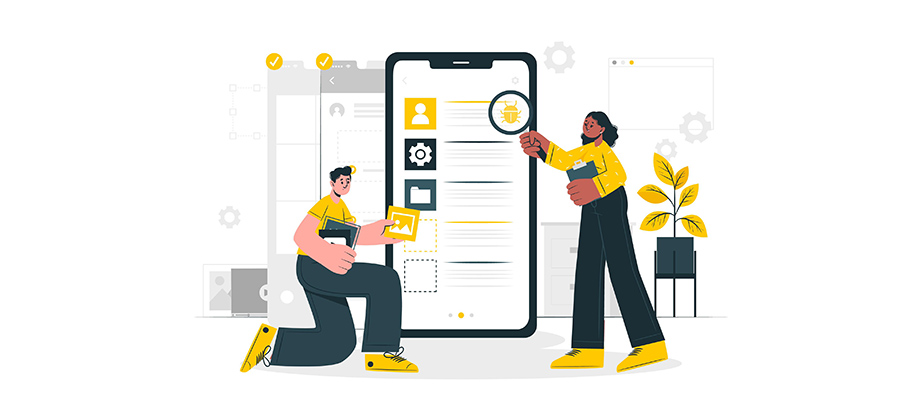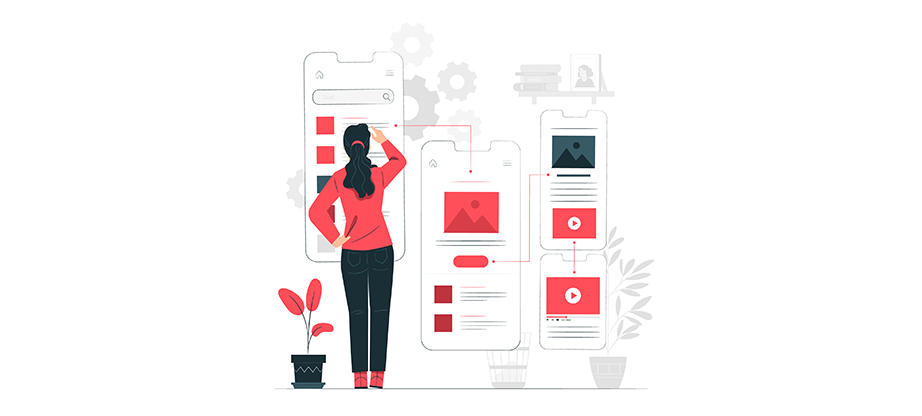How Mobile Apps Can Help Grow Your Business
According to Statista, 83.40% of the global population uses a smartphone, which equates to a staggering 86.648 billion people. This is an enormous potential audience you can reach through a business app. Your app can provide a service on its own or facilitate your business. For example, if your business is a digital banking service, your app will be the service. Whereas, if you run a restaurant, an app can facilitate bookings and rewards. Throughout this article, we’ll tell you how a mobile app can benefit your business.
Improve Customer Connections
As a result of Covid-19, the global market has moved towards preferring digital communication with businesses. Having a dedicated mobile app puts you in a great position to connect with customers on a dedicated platform. According to Clutch.io, the majority of businesses view their apps as a means of improving customer service. However, there’s much more you can do with a mobile app. If you need help developing a more feature-rich app, utilise mobile App development from soVision IT.
Higher Engagement Levels
To drive customer interaction up, you need to make the first move. Traditionally, this involved placing ads in magazines and on billboards, but this was expensive and soon went out of date. Fortunately, with mobile apps, you can interact with customers easily and keep them updated with a simple edit and publish.
The aim of a mobile app is to place your business in as close proximity to your target audience as possible. To do this, you will need to ensure the following traits:
- High-quality support with instant messaging functionality.
- Around-the-clock visibility for new and returning customers.
- Quick one-touch payment options for a seamless experience.
- Having different payment options for in-app purchases.
You can elevate your user engagement level by integrating your app with social media, personalising the experiences with favourite products, and allowing a review platform. According to Oberlo, nine out of ten people inform future purchases by searching through reviews, which means visible positive reviews through your app will be beneficial.
Experience Personalisation
Personalised shopping experiences are highly sought after in 2022, with an estimated 33% of businesses in the UK spending over half of their marketing budget on personalisation. When it comes to mobile apps, businesses can grant users the ability to alter the experience according to their preferences, which is achieved through artificial intelligence (AI).
Launching Loyalty Systems
Offers are a great way to boost customer interaction with your business, and you can leverage mobile apps to make them more accessible and enjoyable. For example, if you take a look at Taco Bell’s reward system, they’ve gamified the experience by creating simple puzzles to unlock rewards. Your mobile app can boost loyalty by using a simple format such as:
- Cashback systems. Whenever a purchase is made, credit a loyalty account with points that can be used on future purchases.
- Personalised product recommendations. By carefully analysing the way users engage with your app, you can promote relevant products to keep them coming back and becoming loyal customers.
Strengthening Brand Awareness
There’s a direct relationship between product value to customers and the strength of a brand. Without a conscious branding effort, it’s impossible to deliver a quality customer experience. Mobile apps allow marketers to send brand messages straight to their customers’ hands, thanks to the rise of smartphones.
Outside of useful app features, like loyalty programs and booking engines, marketers need to use colours and logos to solidify the brand. For a great example of this, take a look at L’Oreal’s Genius app, which targets its young audience with a heavily branded app. As well as this, celebrities including Dwayne Johnson have created apps like Project Crushed that have strong branding across the entire UI.
Gaining Customer Feedback
Mobile apps are stacked full of tools and data-collecting systems. In particular, customer feedback opportunities add enormous benefits to your business and potential customers. But what is the best method of customer feedback collection?
- App rating prompts. Almost every app has a rating system, which pops up during use to ask for a quick star rating. Despite being intrusive, it takes practically no time out of the customer journey.
- Surveys. After customers have used your services, have them fill out an optional survey. If you give them an incentive – like discounts – they’re more likely to take time to fill it out.
- Widgets. Feedback widgets are one of the most popular collection methods. Instead of collecting quantitative data, widgets help gather qualitative accounts.
When collecting customer reviews, it’s important to respond and use any collected information. For example, if you receive any negative feedback, you need to acknowledge it and consider changing your systems to make services better.
Gather Useful Customer Insights
Operating a successful business is impossible without customer data and insights. When creating a marketing strategy, it needs to be intrinsically linked with current consumer behaviours. By creating a valuable mobile app, you can collect high levels of customer data that will inform service improvements.
Countless analytic tools will take care of all the analysis. Our go-to is UXCam, which will generate plenty of insights including:
- Retention rates.
- Demographic information (device type, gender, age, etc.).
- New daily, weekly, and monthly users.
- Downloads rates and uninstall data.
This information can be collected from countless points, including device permissions. However, the most common way is to have users fill out a mandatory form during registration. This won’t take much time away from your customers because the majority of smartphones have auto-fill.
Greater Call to Action
Potential customers visit websites and mobile apps to simply browse, but they don’t always convert. Fortunately, with mobile apps, you can improve the quality of calls to action, which will help boost conversion rates. As app visitors scroll through information at rapid speeds, a well-placed call to action can help slow them down and sway their decision.
Mobile apps make it easier for customers to interact with businesses and vice-versa. Improved communication with customers, loyalty schemes, and personalised shopping experiences are just a small number of benefits that come with mobile applications.




